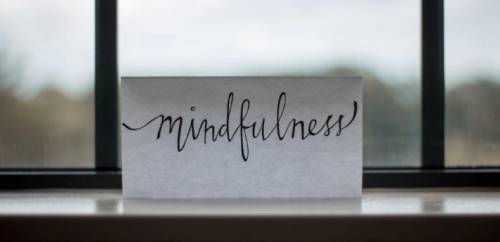Can I Practice Mindfulness Everyday?

Many people who dive into the world of mindfulness practices think that it's going to be super simple to start with. In fact, it's pretty easy to understand, and that means it's going to be an easy integration into your everyday practices. However, that being said, it is challenging to incorporate them into your life because life is never the same thing from day to day.
Much like any other habit or routine that you're trying to incorporate into your daily life, it is going to take consistency and patience. But it is very easy to apply mindfulness practices in your everyday life. You can apply it in exercises, journaling, or meditation very easily, as long as you're focused on ensuring that you allow the time for these practices. It has been shown that incorporating mindfulness practices into your everyday routines can actually elevate your well-being on a multitude of different levels.
In this article we'll talk about the benefits and the difficulties you might find in trying to practice mindfulness every day, as well as some words of advice that should be able to help you to do this much easier.
Why Build Mindfulness Into Your Everyday Routines?
Every day we rush around our lives trying to get 50,000 things done in a limited time frame. That, coupled with the inundation of sensory overloads, keeps our brains in constant fight or flight mode. This can have serious ramifications when it comes to our health, and so trying to find ways to relieve that stress and anxiety brought about by our everyday lives can be quite beneficial.
Because mindfulness focuses on you controlling the here and now, and not looking to the future or the past, this ancient practice can help with this stress and anxiety. There have been many studies that show that mindfulness in any form, whether that be meditation or something more tangent like journaling, can relieve the stress and allow your mind to process the day's events.
In other words, why build mindfulness into everyday routines? Simply for your own sanity and health. It has been known to help with many things including:
Lowering your blood pressure
Increased sleep quality
Building self-esteem
Overall better psychological and physical well-being
And so much more!
Difficulties of An Everyday Practice
Life! The answer to what is the biggest challenge to building an everyday mindfulness practice is life. Both externally and internally, things that occur within your life can cause quite a challenge in consistently executing your everyday mindfulness practices.
Some days you won't have the energy or just really not be in the mood; that can really affect your drive to execute your mindfulness practices. Along with that, there are the external factors of your everyday life.
Things like childcare and time can really throw up obstacles on your path to mindfulness. All of these are difficulties that you might experience when you're trying to build a routine of mindfulness into your everyday life. But that's exactly why mindfulness is so important. By being consistent with your mindfulness practices, you will be able to build the skills to deal with these difficulties and overcome them easily.
If you're patient and dedicated, you can build a mindfulness practice and the skills that allow you to navigate life in a more present condition which will eventually lead to a healthier you and better relationships.
Can I Practice Mindfulness Every Day? Some Advice To Incorporate Mindfulness Practice Into Your Life
If you're still asking yourself whether you can practice mindfulness every day or not, the answer is yes. It may be challenging at first, but once you dive deep into it and develop systems, you will be able to take advantage of all the benefits mindfulness can bring to your life.
We know that it might be challenging, and so we thought we'd give you some words of advice that will help you navigate these difficulties and come out the other side happier than you've ever been.
Not So Formal
Sometimes when people hear mindfulness, they automatically think about meditation. This means they automatically consider thinking about themselves as having to sit still and do a bunch of formal steps. But mindfulness is not necessarily a formal situation.
You can practice mindfulness anytime and in any place. It's simply you stopping to notice your surroundings and your senses and collecting your thoughts.
Life Happens
We all have things that come up in our lives. Of course, if it becomes something that's a regular occurrence and develops to be more of an excuse than an actual life obstacle, it's a problem when it comes to building a mindfulness practice.
But there will be things in life that get in the way of your mindfulness practice, so you have to learn to be flexible and try to adjust so that you can still get your mindfulness in but be present in the situations that are occurring.
Try Stuff Out
Mindfulness, much like any other type of self-care or practice, is not a one-size-fits-all tool. You have to be flexible and try a bunch of different things to figure out what mindfulness practices work for you.
For some people, meditation and yoga are perfect, while others have issues sitting still. So something like journaling or a mindfulness walk would be better. Try some stuff out and see which one gives you the best feelings, and then incorporate those into your everyday life.
Short-term Goals
Many of us, when we jump into something new, set really lofty goals. But when you set those big goals, you're setting yourself up for failure. Because once you have not met them, you begin to think that the process doesn't work.
So when starting mindfulness practices, make sure you start with short-term goals. If you have a larger goal, break it down into smaller steps so that you can feel like you're accomplishing something, this will help you be more likely to maintain these new practices.
Accountability
For someone who has trouble sticking with things, whether that's because you have some sort of attention problem or just commitment issues, having someone to help you stay accountable is always a great idea. This doesn't necessarily have to be someone who calls you every day, but you can institute accountability into your life by telling people what you're doing.
Oftentimes, when you tell people what you're doing, you then feel like you have to execute those tasks so that you don't feel like you have been lying. So use accountability in whatever way works for you. Whether that is an accountability buddy or simply by talking about everything you're doing all the time so that you can make sure your everyday mindfulness practice becomes something that is a routine and not just a fad.
Write It Down
We are sure that you've heard that writing things down makes them more likely to come to fruition. So once you have your goals and schedule in your mind, write them down. Make sure that you put it someplace where you're going to always see it.
Some people put it on their fridge. Other people like to use mirrors in their bathrooms. But wherever it is, make it very visible, so it is something that you see consistently. With this constant reinforcement, you will be able to make those everyday practices stick, and that will lead to more successful mindfulness practices.
Final Thoughts
To practice mindfulness everyday, one of the first things you have to do is to be able to understand the obstacles you're going to be coming up against when you're looking to incorporate new habits and routines into your life.
Understanding that whatever mindfulness practices you are trying to put in place do not have to be formal also is another key factor in ensuring that you can easily incorporate mindfulness into your everyday life. If you can do this and take to heart the other advice we have given, you will be able to build an everyday mindfulness practice and find your way to living a happier, healthier life.















